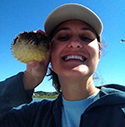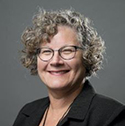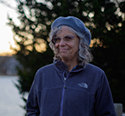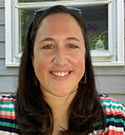- Watch: Full Session Recording (YouTube)
- View: Sharing Ideas and Resources from the Webinar (Google Doc)
- Download: Webinar Summary Report (PDF)
- Learn about related projects: K-12 Collection
Engaging youth and K-12 teachers can expand the broader impact of research and advance coastal stewardship goals. But what are the best strategies for effectively reaching this unique audience and what innovative techniques are being tested?
This panel discussion webinar featured three panelists with experience leading innovative projects that connect K-12 teachers and students with the important research and stewardship activities happening in and around National Estuarine Research Reserves. After providing a brief glimpse into their recent projects, panelists discussed lessons learned and ideas for next steps. Sarah Nuss, an experienced reserve educator, moderated a lively discussion about timely topics, including the partnerships and creative process that spark new projects, broader impacts observed, adaptations to support social distancing, and ideas for research about student and teacher learning.
Learn more about speakers:
 | Julie Binz is the education coordinator at ACE Basin Reserve in South Carolina where she leads boat- and field-based experiences for a range of school and community groups. Julie has been working for many years on a unique program that helps classes grow marsh grasses in school greenhouses and transplant the grasses into local shoreline restoration sites. Learn about her recent projects: Spreading the Seeds of Estuary Health and From Seeds to Shoreline. | |
 | Elizabeth Edmondson helps train pre-service teachers and leads a number of research projects as part of the School of Education at the Virginia Commonwealth University. Elizabeth will be part of a multi-university team working with the Chesapeake Bay NERR to train pre-service science teachers on how to incorporate environmental education into their classroom curriculum. To learn more, read Elizabeth’s bio. | |
 | Joan Muller is the education coordinator at Waquoit Bay Reserve in Massachusetts where she provides professional development for teachers and organizes programs for community members. Joan has partnered with a number of researchers and found creative ways to integrate blue carbon and oyster ecology into middle and high school curriculums. She’s also been customizing programs for hard to reach audiences through initiatives such as Deaf Students on the Estuary. | |
Moderator:
 | Sarah Nuss has been the education coordinator at the Chesapeake Bay Reserve in Virginia since 2005. In addition to pursuing a PhD in Curriculum Learning Design, Sarah develops education, interpretation and outreach programs for a range of audiences, and one current area of interest is professional development for graduate students and pre-service teachers. She has led several Science Collaborative projects, including: Climate Education for a Changing Bay Expansion and Creating an Alliance of Scientists and Educators in Virginia. | |